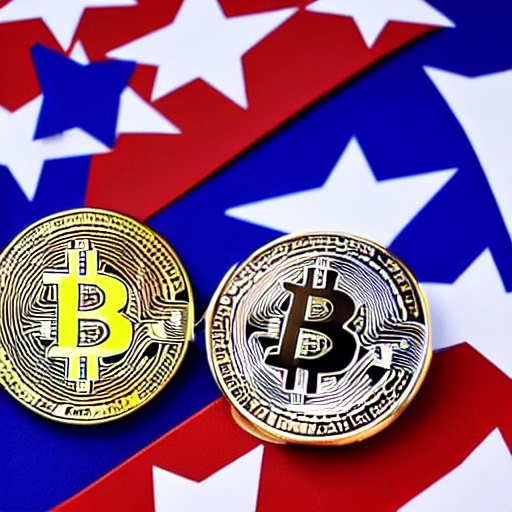The fragile ecosystem of digital assets in the United States is being shaken by back-to-back lawsuits filed against two of the largest crypto businesses in the world.
The Securities and Exchange Commission filed two harsh complaints against Binance and Coinbase in the space of 24 hours, alleging that they ran unauthorized securities exchanges in the United States. The actions signal a substantial uptick in the SEC’s effort to control a sector that has long operated in a legal limbo.
On Tuesday, investors dumped roughly $800 million from Binance’s platform in the space of 24 hours, and Coinbase’s price took a beating, plummeting more than 12%.
Litigation resulting from the lawsuits could last for months or even years to be resolved.
Many Americans who invested in or believed in digital assets are currently in a precarious situation. Can I trade cryptocurrency in a secure environment?
Probably not, is the quick response. at least for the time being.
According to Matt Levine, a columnist for the newspaper, all cryptocurrency exchanges are committing crimes, and if you’re lucky your exchange is committing only process crimes.
In other words, the SEC, the top Wall Street regulator, considers almost all crypto tokens apart from bitcoin to be securities, therefore any cryptocurrency exchange operating in the United States is illegal in its eyes. A license is also required to work in the securities industry.
Naturally, Coinbase asserts that the SEC previously approved its business model when the authority gave the organization permission to go public in 2021 and that the company has made efforts to cooperate with regulators to guarantee it is compliant with the law.
Having tried several times, but there is no way to come in and register, Coinbase CEO Brian Armstrong tweeted on Tuesday. The SEC deployed a regulation by enforcement strategy rather than releasing a detailed rule book. So, if we need to use the legal system to obtain clarification, so be it.
Ambiguous regulations
Crypto companies frequently complain about the lack of regulatory clarity, claiming that the United States is driving the business outside and ultimately handing control to foreign regulators who have developed better regulations.
Gary Gensler, the top officer at the SEC and an outspoken critic of cryptocurrencies, may be aware of this, but he doesn’t appear to care.
We don’t need additional digital currency, said Gensler on Tuesday. The US dollar is a type of digital currency that we already use. It goes by the name of the euro or the yen; they are all currently digital. Digital investments already exist.
According to Gensler, investors should be aware that the SEC is willing to assist them.
The US securities laws are advantageous to the investing public. He stated that cryptocurrency shouldn’t be any different, and that these platforms and intermediaries must comply.
The SEC’s double whammy of civil lawsuits provides the framework for litigation and, ultimately, judicial scrutiny that could drive Congress to take action.
According to analysts at TD Cowen, only Congress can put an end to the policy confusion that has covered cryptocurrency for the past year. It is for this reason that while this legal action may not be advantageous for Coinbase, it ought to be positive for the cryptocurrency industry. Regardless of the judge’s decision, it should get crypto closer to the ultimate set of rules of the road.
Reena Aggarwal, director of Georgetown University’s Psaros Centre for Financial Markets and Policy, advised US investors to exercise extreme caution when choosing where to trade in cryptocurrencies. She doesn’t anticipate this to alter, as US regulators are pursuing crypto businesses vigorously.
Because the Chicago Mercantile Exchange is a regulated organization, Bitcoin and Ether futures traded there are a secure option, according to Aggarwal. Traditional financial institutions also provide ETFs that are connected to bitcoin futures.
The world’s first and most widely used cryptocurrency, bitcoin, was interestingly rising on Tuesday despite the regulatory onslaught. That’s in part because the SEC considers virtual money to be a commodity that falls under the CFTC’s jurisdiction.
Bitcoin recovered Tuesday, trading above $27,000 in the afternoon after falling 6% on Monday.
According to Ed Moya, a senior market analyst with Oanda, many cryptocurrency investors seem to be giving up on so-called “alt-coins” and sticking with the OG virtual currency, which is comparatively more dependable.
Conclusion: According to Moya, the SEC appears to be playing Whac-A-Mole with cryptocurrency exchanges. Due to this, cryptocurrency investors will have to choose whether they are confident in the availability of the products on several exchanges for trading.
It is not guaranteed in any way. But cryptocurrency trading has always required a iron stomach because it is, even in the best cases, a high-risk business.








